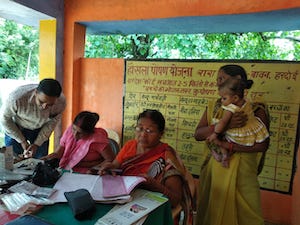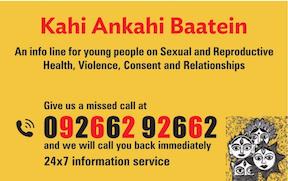Over 100k people in rural India accessed verified info on #coronavirus and received support on relief measures through Mobile Vaani, as part of the Verified...
#GVtech4change: SnapVaxx to improve coverage and follow-up of immunization
Despite the efforts of frontline health workers and programmes by governments to boost immunization of children, there are several issues that make this difficult. Read...
Answering young people’s questions on sexuality with Kahi Ankahi Baatein
This infoline plugs the gap in young people’s access to confidential, non-judgmental information on sexual and reproductive health and rights.




